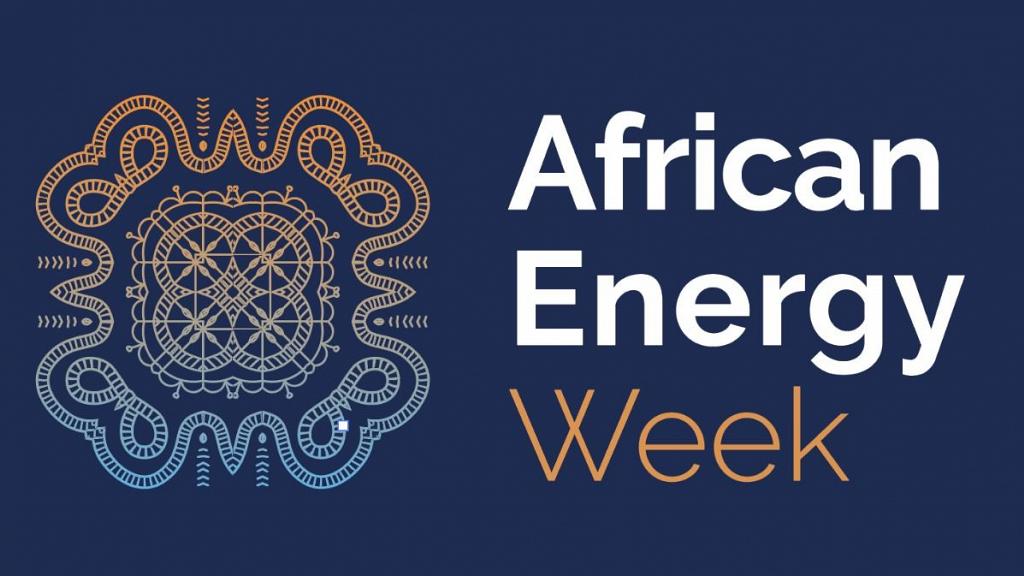Economy
Kyari to Highlight PIA Benefits at 2021 African Energy Week

By Adedapo Adesanya
The Group Managing Director of the Nigerian National Petroleum Corporation (NNPC), Mr Mele Kyari, is set to outline the benefits of the Petroleum Industry Act (PIA) at the 2021 African Energy Week (AEW) set to hold in Cape Town, South Africa.
At AEW 2021, Nigeria’s delegation will be led by Mr Timipre Sylva, Minister of State for Petroleum Resources, while Mr Kyari will lead the discussion on the benefits and opportunities of the PIA.
He will also promote the law, emphasizing how Nigeria will serve as a trend for other resource-rich nations looking to secure international investment.
Nigeria has made significant to reform its oil and gas industry in 2021, with the progressive legislation being passed into law that not only restructures the domestic sector but provides a more attractive investment destination for international players.
With the passing of the act, the country has moved to position and stamp itself as Africa’s top energy market.
The PIA comprises a complete overhaul of the administrative, regulatory and fiscal regime in Nigeria’s energy sector, restructuring key petroleum institutions in order to streamline processes and drive the country’s oil and gas industry expansion.
As the country faces challenges of declining oil production from mature fields, coupled with the reduced capital expenditure climate brought about by the COVID-19 pandemic, the PIA aims to enhance the sector’s attractiveness for foreign investment, ensuring a market-driven regulatory environment that will accelerate the country’s industry developments.
Notable regulatory reforms implemented through the PIA include the creation of a new upstream regulator, the commission, which has replaced the Department of Petroleum Resources; the creation of a new Nigerian midstream and downstream petroleum regulatory authority; and the complete overhaul of the NNPC – to be replaced by the NNPC Limited which will operate on a commercial basis without government funding.
Accordingly, Nigeria has placed transparency at the centre of its reforms. Additionally, fiscal reforms include the reduction in the taxation and royalty-take of new/converted licenses from the prior regime; and the introduction of a hydrocarbon tax – to replace the existing petroleum profits tax.
By incentivising investment, the government is focused on accelerating development across the entire energy sector value chain.
With over 200 trillion cubic feet of natural gas reserves and 36 billion barrels of oil, Nigeria is well-positioned to become a global energy player. Now, with a regulatory environment that places an emphasis on stability and transparency, the country is bound to see an influx in foreign capital and international company participation.
Speaking on the development, Mr NJ Ayuk, Executive Chairman of the African Energy Chamber (AEC) said, “Nigeria has set an incredibly high standard for other African countries. By implementing a complete regulatory, fiscal, and industry overhaul, introducing key institutions and streamlining sectoral regulations, the government has positioned Nigeria as Africa’s most attractive energy sector. the passing of the PIA is exceptional.
“This piece of legislature will usher in a new wave of investment and international participation in the Nigerian sector, and the government should be commended on this achievement. In Cape Town, we are looking forward to Mele Kyari going into detail on the benefits that the passing of the PIA will bring to the country.
“Kyari will advise on the NNPC restructuring, directly engage with investors, and promote the significant opportunities brought about by the PIA.”
AEW 2021, in partnership with South Africa’s Department of Mineral Resources and Energy DMRE, is the AEC’s annual conference, exhibition and networking event. The event unites African energy stakeholders with investors and international partners to drive industry growth and development and promote Africa as the destination for energy investments.
Economy
Oil Slides as Iran Signals Willingness to Seal US Nuclear Deal

By Adedapo Adesanya
Oil depreciated on Tuesday after Iran said it was prepared to take any necessary steps to clinch a deal with the United States ahead of nuclear talks later this week, with Brent futures shedding 72 cents or 1.0 per cent to trade at $70.77 per barrel, and the US West Texas Intermediate (WTI) futures declining by 68 cents or 1.0 per cent to $65.63 a barrel.
Iran, the third-biggest crude producer in the Organisation of the Petroleum Exporting Countries (OPEC), and the US will hold a third round of nuclear talks on Thursday in Geneva, Switzerland.
America wants Iran to give up its nuclear programme, which the country has denied trying to develop an atomic weapon.
Meanwhile, Iran’s deputy foreign minister said on Tuesday that it was ready to take any necessary steps to reach a deal with the US.
However, the US State Department is pulling out non-essential government personnel and their families from its embassy in Beirut, Lebanon, as concerns mount about the risk of a military conflict with Iran.
The US has deployed a vast naval force near the Iranian coast ahead of possible strikes on the Islamic Republic. The American president, on February 19, said he was giving Iran about 10 to 15 days to make a deal.
Also, the US began collecting a temporary new 10 per cent global import tariff on Tuesday, but President Trump’s administration was working to increase it to 15 per cent, a development that has led to confusion after the country’s Supreme Court ruling.
On the supply front, trading houses and buyers of Venezuelan oil have chartered the first very large crude carriers to export from the South American country since a supply deal began between the US and Venezuela. This is set to speed up shipments from March while boosting deliveries to India.
The European Commission will submit a legal proposal to permanently ban Russian oil imports on April 15.
The American Petroleum Institute (API) estimated that crude oil inventories in the United States rose by 11.4 million barrels in the week ending February 20, after falling by 609,000 barrels in the week prior. Official data from the US Energy Information Agency (EIA) will be released later on Wednesday.
Economy
Nigeria to Export New Crude Grade Cawthorne in March

By Adedapo Adesanya
The Nigerian National Petroleum Company (NNPC) Limited is set to commence export of a new light, sweet crude grade known as Cawthorne from March 2026.
According to a report by Reuters, an NNPC spokesperson confirmed the development, describing it as part of efforts to increase output and consolidate Nigeria’s recent recovery in crude oil production.
The move aligns with Nigeria’s broader strategy to boost production after years of constraints caused by pipeline vandalism, crude theft, and unrest in oil-producing regions.
This follows the launch of two other new grades, Obodo in 2025 and Utapate in 2024, Nigeria, whic,h as Africa’s top oil exporter, seeks to strengthen its standing within the Organisation of the Petroleum Exporting Countries and its allies (OPEC+)
Cawthorne crude is scheduled for export in the third week of March and has an API gravity of 36.4, making it similar in quality to Nigeria’s Bonny Light, which is prized for high petrol and diesel yields.
According to Reuters, citing a trading source, the state oil national company issued a tender last week for cargo loading between March 24 and 25.
Analysts at Kpler noted that the new grade is expected to be exported via the Floating Storage and Offloading (FSO) vessel Cawthorne, which has a storage capacity of about 2.2 million barrels. The vessel is designed to enhance transportation and production from Oil Mining Lease (OML) 18 and nearby assets in the Eastern Niger Delta.
Kpler estimates that, based on storage capacity, Cawthorne could increase Nigeria’s crude and condensate output from roughly 1.65 million barrels per day to around 1.7 million barrels per day for the remainder of the year.
Nigeria’s crude oil production recently dropped from the OPEC+ quota of 1.5 million barrels per day, with output at 1.48 million barrels per day recorded in January, according to OPEC data.
Beyond increasing Nigeria’s crude offerings to the international market, the introduction of Cawthorne could also attract buyers seeking specific light, sweet crude qualities, buoy foreign exchange earnings, which would help strengthen government revenue and ease borrowing needs.
New crude grades are typically differentiated by sulfur content, API gravity, and production source, enabling producers to target specific refinery configurations and market segments.
In November 2024, NNPC officially launched the Utapate crude oil blend in the international market, describing it as a milestone for Nigeria’s export profile.
Earlier in July 2024, NNPC and its partner, Sterling Oil Exploration & Energy Production Company (SEEPCO), lifted the first 950,000-barrel cargo of Utapate crude, which was shipped to Spain.
Economy
Moniepoint Research Shows Diminishing Role of Cash in Nightlife Payments

By Modupe Gbadeyanka
A new report released by Africa’s leading all-in-one financial ecosystem, Moniepoint Incorporated, has revealed that the use of cash for financial transactions is gradually dying due to security concerns.
The study, which looked into transaction data of over 27,000 clubs, bars, and lounges, showed that bank transfers dominated, followed closely by card payments, with cash actively discouraged. It was observed that transfers outpace card payments by nearly 2 million transactions during peak nighttime hours across its network.
In the research titled The Business of Community Nightlife in Nigeria, findings provided a rare, data-driven look into the country’s informal night economy.
While high-end Detty December venues grabbed headlines with daily revenues of N360 million and table prices reaching N1.2 million, Moniepoint’s study shifted the spotlight to the “community nightlife” where roadside bars, suya spots, and neighbourhood joints form the bedrock of social life for millions of Nigerians.
One of the study’s most operationally significant findings concerns the timing of spending. Nightlife in Nigeria runs late, but economically, the night is decided early.
Transaction volumes begin climbing sharply from 8 pm, peak before midnight, and then decline steadily even as venues remain full. By the time the night is at its longest, purchasing activity has already wound down.
However, for bar operators, this has clear practical implications – the most critical hours for staffing, stocking, vendor payment and cash flow management are the earliest hours of the day between midnight and 6 am.
The report further underscores the sector’s role in employment, noting that local bars typically expand their workforce by 30-50 per cent on peak nights. Conservative estimates suggest that at least 54,000 people are engaged in nightlife labour every night across Nigeria.
It was also observed that the most common transaction narrations from the data sourced – “food”, “pay”, “sent”, “pos”, “cash” – reflect the full breadth of nightlife spending: street food, club entry, lounge tabs, transport, and afterparties. Digital payments have gained huge traction in Nigeria’s social space.
While alcohol remains a key revenue driver, the data shows that food is the quiet stabiliser of Nigeria’s night economy, particularly in local and informal settings. In several neighbourhood venues, bottled water and meals outsell beer and spirits, especially early in the evening.
Lagos leads in sheer concentration of nightlife establishments, with 4,856 bars, clubs, and lounges on the Moniepoint network. FCT follows with 2,515, then Rivers (2,362), Delta (1,930), and Edo (1,574).
Katsina leads the country in nighttime food truck payment value, with vendors pulling in over N130 million in the last 12 months. Kwara State leads in transaction count. Nigeria’s nightlife economy is distributed, not overly elitist.
On the lending side, the report noted that a significant share of loan requests from bar and lounge operators is directed toward renovations, furniture, lighting, and sound systems, showing that investments are intended to attract and retain customers in a competitive sector where ambience plays a decisive role.
Commenting on the report, the chief executive of Moniepoint, Mr Tosin Eniolorunda, said, “Nigeria’s local bars and night-time operators are not peripheral to the economy; they are a critical part of its architecture. We see a substantial and sustained economic sector that employs hundreds of thousands of Nigerians every night and deserves the same attention we give to agriculture, healthcare, and retail.
“Our goal is to make sure every one of those businesses has the tools to grow. From giving credit to finance renovations and sound systems to providing same-day settlement that allows vendors to restock and with tools like Moniebook that power inventory management and reconciliation, Moniepoint is ensuring that this vital artery of the nation’s economy remains viable and empowering.”
-

 Feature/OPED6 years ago
Feature/OPED6 years agoDavos was Different this year
-
Travel/Tourism10 years ago
Lagos Seals Western Lodge Hotel In Ikorodu
-

 Showbiz3 years ago
Showbiz3 years agoEstranged Lover Releases Videos of Empress Njamah Bathing
-

 Banking8 years ago
Banking8 years agoSort Codes of GTBank Branches in Nigeria
-

 Economy3 years ago
Economy3 years agoSubsidy Removal: CNG at N130 Per Litre Cheaper Than Petrol—IPMAN
-

 Banking3 years ago
Banking3 years agoSort Codes of UBA Branches in Nigeria
-

 Banking3 years ago
Banking3 years agoFirst Bank Announces Planned Downtime
-

 Sports3 years ago
Sports3 years agoHighest Paid Nigerian Footballer – How Much Do Nigerian Footballers Earn



















